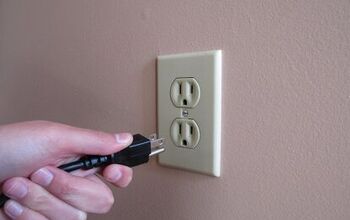When Is The Best Time To Hire A Contractor?

Hiring a contractor is a big move, and it takes a lot of thought and time. After all, everything from the time of year to the type of work you need done affects the cost. So, when is the best time to hire a contractor?
The best time to hire a contractor is during the off season, which runs from November through May. This is when contractors are typically less busy, so it’s easier to get the project done on your ideal timeline. It’s worth hiring a contractor instead of doing the project yourself if it entails electrical work and requires lots of expensive materials.
Many states require contractors to obtain licenses, so verify your contractor’s license if you feel apprehensive. It’s also important to make sure your contractor is insured and bonded. Follow along as we explore the best time to hire a contractor and highlight everything you must know.
What Is The Best Time Of Year To Hire A Contractor?
The best time of year to hire a contractor and save money is between November and March. That is especially true if you plan to remodel your home and take on a big project. Winter is considered the off season for contractors throughout most parts of the United States.
However, it ultimately depends on the type of work you need done. For example, some contractors may take a break from certain projects during the winter, such as roofing. That’s why it’s worth contacting several contractors long before you want the project done.
Ideally, you should hire the contractor at least 3 months before you want to start the project. Doing so can help you avoid inflated rates that often accompany rush jobs. Book your contractor early to potentially save money and ensure you get a good start date.
When Should You Hire A Contractor?
It’s best to hire a contractor for risky, complicated projects that you cannot do without professional help. DIY jobs can save money, but you must weigh the pros and cons before you forego a general contractor. General contractors often employ teams including people who specialize in niches, such as electrical work and flooring.
Not only do they have the knowledge and skills, but general contractors can also easily acquire permits as needed. Contractors need licenses in most states, and licenses can tell you a lot about the contractor you’re hiring. Ideally, you should only look for licensed contractors, as they’re often perceived as more trustworthy because of the licensing process.
The license doesn’t mean they’re perfect, but it at least means they met the requirements. It’s worth hiring a contractor if you have limited renovation and construction knowledge. In some cases, hiring a contractor can save time and money, as the project is less likely to get drawn out if you do the work yourself.
What To Know Before Hiring A Contractor
Hiring a contractor is a big commitment. It takes a lot of trust, time, and money, long before the contractor even completes the project. You can get it right the first time and hire the perfect contractor if you consider a few things, such as:
1. No Two Contractors Are Exactly Alike
You can’t simply call one contractor, get a quote, and choose them for your project. Of course, you can, but it’s much better to get quotes and vet several contractors. Focus your search on licensed contractors to ensure you’re working with experienced, qualified people.
A contractor’s estimate, expected timeline, and deposit clause can tell you a lot about a them. Look for red flags like inflated deposits and time estimates that differ significantly from other contractors.
2. Plenty Of Information Is Available
Today, finding reviews and valuable information about contractors is easier than ever. That’s especially true for contractors who have Google Business Profiles. The review feature lets real customers post reviews, and some of them include pictures.
However, you must keep in mind that one or two bad reviews doesn't necessarily mean the contractor is terrible. Pay attention to the consensus to get an understanding of the overall customer experience. You can also check the Better Business Bureau’s website to see if the contractor is listed.
3. Find Out The Project’s Duration
Miscommunication can ruin your perception of your upcoming project. That’s why it’s best to learn everything you can about the project’s details, including the duration. Experienced contractors can usually provide an estimate for how long a job will take.
The estimate isn’t a guarantee, but it should give you an idea of the duration. They may tell you about how certain delays, such as rain and severe weather, can affect the project’s timeline. Don’t hesitate to ask the contractor for an accurate time estimate before hiring them.
4. Only Look At Insured Contractors
The last thing you want is to be held liable for damages caused by your contractor. That’s why you must only look at insured and bonded general contractors. Reputable contractors have liability insurance to ensure their customers aren’t financially responsible for damages.
In some cases, that even includes damage done to your neighbor’s property. This is important for big projects, as contractors may accidentally drop materials and equipment on your neighbor’s fence or car. Hiring an uninsured contractor is a mistake that could cost you thousands of dollars, if not more.
5. Pay Attention To Their Specialization
General contractors typically have experience with many types of projects. They often employ crews made up of people with unique talents, such as electrical work and roofing. However, you can also find contractors who specialize in specific projects, like remodeling kitchens.
It’s worth looking for contractors who specialize in the type of project you need done. For example, you may want to limit your searches to “kitchen contractors near me” if you want your kitchen remodeled. Look at pictures of their past work and do your due diligence researching their accreditations.
Should I Pay A Contractor 50 Percent Up Front?
Contractors sometimes ask for 50 percent of the cost of the project up front. However, it depends on the contractor, the type of project, and the timeline. That said, you should think twice before paying a contractor more than 50 percent up front, as that isn’t the norm.
Contractors typically ask for deposits to cover the cost of materials needed for the project. The deposit can also help them cover some of the cost of delays and getting the project underway. Of course, the deposit counts toward the project's total cost, and you typically pay the rest upon completion.
It’s worth reading reviews and talking to past clients before you give the contractor a deposit. For example, you may see some accounts of people saying the contractor took the deposit and never completed the job. It’s better to be safe than sorry, so don’t hesitate to check Google reviews and personal accounts.
Summing It Up
Winter is the best time to hire a contractor if you want to ensure you can get the project done on the most convenient date for you. The off season for contractors typically lasts between November and March due to the low demand and cold weather. Only hire licensed and insured contractors to ensure high-quality work with little risk liability to you.
Related Guides:

Nick Durante is a professional writer with a primary focus on home improvement. When he is not writing about home improvement or taking on projects around the house, he likes to read and create art. He is always looking towards the newest trends in home improvement.
More by Nick Durante



























